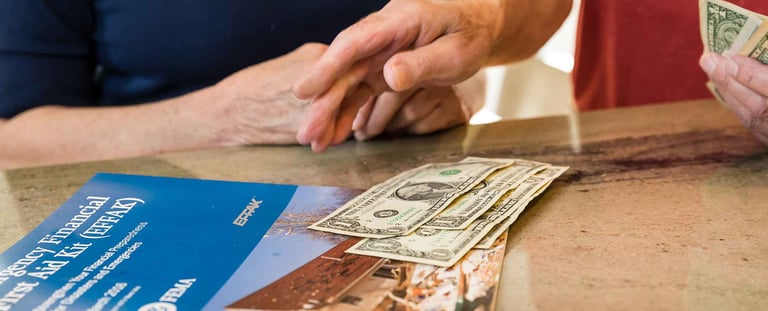Financial Preparedness for Preppers: Securing Your Future Before Disaster Strikes
Learn how financial preparedness can empower preppers to survive and thrive in uncertain times. Tips on budgeting, emergency funds, and strategic investing for long-term security.
8/17/20252 min read
Financial Preparedness for Preppers: A Guide to Securing Your Future
When most people think of prepping, they imagine stockpiling food, water, and survival gear. While those are critical, financial preparedness is often overlooked. Money, credit, and access to resources play a huge role in how well you can weather emergencies. Whether it’s a natural disaster, economic downturn, or personal crisis, having a financial plan ensures you can protect your family and your lifestyle.
Start with an Emergency Fund
One of the most important steps in financial preparedness is creating an emergency fund. Preppers often focus on tangible supplies, but cash is one of the most versatile tools during a crisis. Aim to save at least three to six months of living expenses in a liquid account. This fund should be easily accessible in case of sudden unemployment, medical emergencies, or urgent repairs.
Diversify Your Assets
Relying solely on cash can be risky. Diversification is key to financial resilience. Consider a mix of assets such as precious metals, cryptocurrencies, and real estate. Precious metals like gold and silver hold value when traditional markets falter. Cryptocurrencies can offer a digital alternative in case of banking system disruptions. Real estate provides both shelter and potential income, giving preppers multiple layers of security.
Budgeting for Preparedness
Prepping can become expensive if not planned carefully. Creating a budget specifically for prepping activities helps manage costs without breaking your finances. Track your spending and allocate funds for essential categories: food storage, water purification, first aid supplies, and financial reserves. Prioritize long-term investments that maintain value rather than impulse buys that may become obsolete in an emergency.
Insurance: A Safety Net You Cannot Ignore
Financial preparedness also involves protection against the unexpected. Health, life, property, and disability insurance can prevent financial ruin when emergencies strike. Preppers often underestimate the cost of medical bills or property damage. Choosing the right policies ensures that your emergency funds are preserved for actual emergencies rather than paying for preventable losses.
Plan for Cash Flow Disruptions
During disasters, banks and ATMs may not function normally. Preppers should plan for periods when electronic payments are unavailable. Keep a small portion of your funds in cash, split into small denominations for everyday use. Additionally, barter items like fuel, food, or other essentials can serve as alternative currency in extreme situations.
Invest in Self-Sufficiency
Financial preparedness is not just about money; it’s about reducing dependency on external systems. Investing in skills such as gardening, basic mechanics, first aid, and renewable energy can save money and provide critical survival tools. These skills, combined with a strong financial plan, create a multi-layered defense against uncertainty.
Stay Informed and Flexible
Markets, policies, and environmental conditions change constantly. A financially prepared prepper stays informed about economic trends, local government alerts, and global events. Flexibility is key; your financial plan should evolve with circumstances, allowing you to adjust investments, cash reserves, and budgeting priorities as needed.
Conclusion
Financial preparedness is an essential component of a complete prepper strategy. From building an emergency fund to diversifying assets, budgeting, and investing in self-sufficiency, your money should work as hard as your supplies. When a crisis hits, those with solid financial planning can respond faster, adapt better, and protect their families more effectively. Don’t wait for disaster to strike; start strengthening your financial foundations today.

